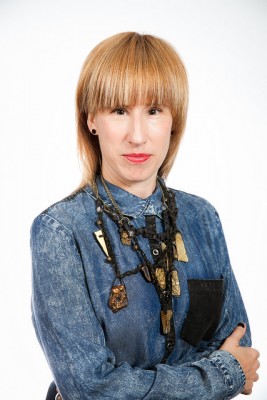 Ten years working as a teacher in Los Angeles, London and New York City led to Kathryn Fuller experiencing many realizations, including the limited role “smarts” or intelligence can play in classroom learning.
Ten years working as a teacher in Los Angeles, London and New York City led to Kathryn Fuller experiencing many realizations, including the limited role “smarts” or intelligence can play in classroom learning.
“When kids live in poverty, don’t have family support, or don’t receive the kind of early childhood education needed to effectively prepare them for elementary school and beyond, how are they supposed to ever catch up and succeed like more privileged peers?” said Fuller. Her anger and frustration at the effects of discrimination and other forms of social injustice caused her to take action, and for UConn Neag School of Education students to benefit.
Using money from her family’s railroad business, Fuller recently presented $150,000 to the Neag School to establish the Fuller Scholarship for Social Justice in Education. The first three $10,000 scholarships from the fund were presented at the start of the fall 2014 semester.
Like future awardees, the undergraduates chosen to receive the funds showed what Fuller called an eagerness and “spark” to confront inequalities and take part in the kind of long-term conversations needed for significant change to occur.
“At 18, you may not yet know exactly how you want to focus your life, but you do have an idea of what’s important to you,” said Fuller, who currently works as a museum educator at the New York Historical Society Museum & Library, as well as creates jewelryfrom leather, metal and semi-precious stones as owner of Palomino Jewelry NY. “The scholarship is for future educators who want to talk about race and discrimination, and who believe, as I do, that we can’t move forward until we confront our past. Real change doesn’t come from a quick fix. It comes from discovering the root of the problem, and then focusing our ideas and energy on ways to make it right.”
“Teachers also play such an enormously important role in educating young people about the need for social change, and showing their students how we all can all help create a more socially just world,” she added.
According to Neag School Dean Richard Schwab, a gift as large as Fuller’s is always note worthy. But the fact that Fuller is not a UConn alumnus, nor has any ties to the school, makes it especially so.
Simmons College in Boston is where she earned a bachelor’s degree in Philosophy, followed by a master’s in English Education from New York University.
“But when she was looking for a non-profit, public school of education that shared her vision and belief in the dire need for future teachers to be well-versed in social justice issues, she chose the Neag School,” said Schwab. “And for that, we are grateful. We’re also proud she recognized our commitment to eradicating inequalities.”
Indeed, addressing educational inequalities like poverty and racial discrimination is part of the focus of the Neag School’s “Our Time: UConn’s Path to Excellence” strategic plan. Released this summer, the plan outlines how UConn is uniquely positioned to use its expertise and knowledge base to address state and federal efforts to reinvent public education for the 21st century, which includes addressing the educational inequalities that President Barack Obama calls “the civil rights issue of our time.”
Fuller said it took just one visit to UConn for its commitment to become clear. “Everything about the Neag School was so impressive. I left there knowing I’d found a school that shared my vision for the need for more social justice in education, plus the willingness and ability to act on what they believed.
“Children have no control over what families and communities they’re born in to,” Fuller continued. “Yet they enter school carrying the burden of their economic situation, as well as having to handle discrimination cased by their religious background or skin color. To stop the ways these children are being discriminated against, we need to get messy. We need to have conversations and seek out lasting solutions. It’s a huge task, but not an impossible one.”
For more information about scholarships like this one, please contact Heather McDonald at hmcdonald@foundation.uconn.edu or (860) 486-4530.
 Facebook
Facebook
 Twitter
Twitter
 LinkedIn
LinkedIn
